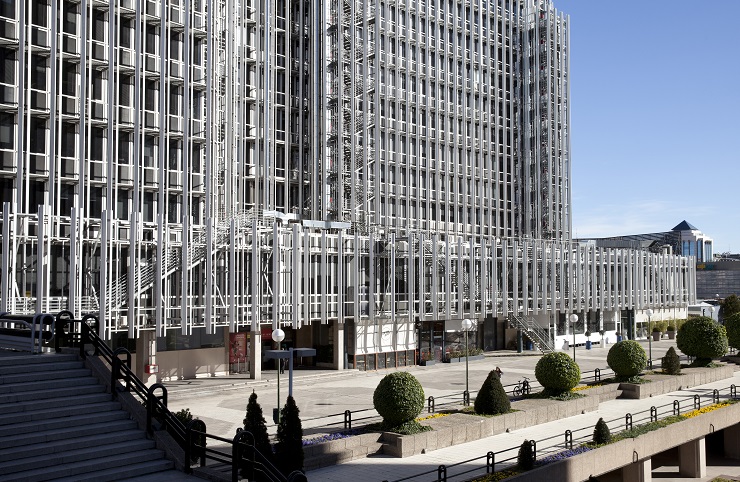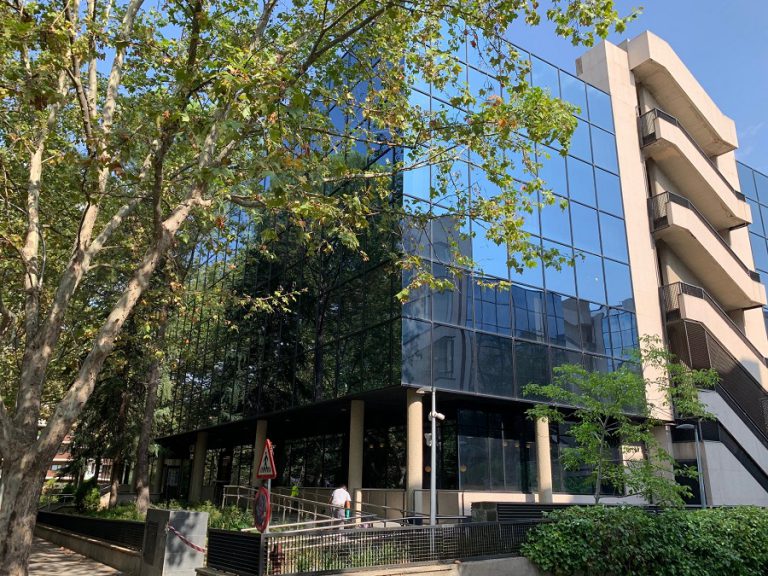Sareb continues to fulfil its mandate, reducing its loan portfolio by 44%
Over the six years that have elapsed since the financial authorities tasked Sareb with divesting assets transferred from troubled banks for an initial value of €50,781 million, the company has reduced its loan portfolio by 44%.
Sareb has focused its strategy for the coming years on real estate development and on speeding up the process to convert its portfolio of non-performing loans into properties through donations in lieu and foreclosures. In 2018 alone, €1,400 million in developer loans were converted into properties, and the company expects to achieve a figure of €3,800 million in 2020.
At YE 2018, the company had generated total revenues of €3,650 million, 5% less than in 2017, in a financial year marked by the uneven performance of the two sections of the portfolio: the management and divestment of non-performing loans and the sale of real estate properties.
In this regard, Sareb sold a record number of properties in 2018, a total of 21,152 units, up 12% on the previous year. These sales, combined with its property management activities, resulted in a 19% rise in revenues to more than €1,400 million. Almost two thirds (63%) of these sales came from the direct sale of housing, ancillary properties, plots of land and commercial property. The majority of these properties were concentrated in four autonomous communities: Catalonia (18.6%), the Community of Valencia (17.3%), Andalusia (11.4%) and Madrid (10.3%).
The remaining 7,823 units were sold within the framework of the Sales Growth Plans (PDV) that Sareb has designed to help real estate developers that hold debts with the company to sell their developments. In this way, debtors are able to generate liquidity to allow them to meet the payment obligations arising from their loans with Sareb.
Some of the growth in real estate sales that was seen in 2018 can be attributed to the commercial strength of the company’s performance in the retail market, in which it implemented a number of specific sales plans in provinces in which Sareb holds a portion of its real estate portfolio and which have traditionally generated lower levels of business. These plans led to an increase of 68% in sales in regions such as Castellón, Murcia and Tarragona.
This was in contrast to the performance of the section of the portfolio represented by real estate loans to developers, which saw a fall in revenues of 16% to €2,208 million. This business was heavily affected by the large transactions carried out in the institutional markets, high levels of competition and the large discounts being offered, a business approach which Sareb prefers not to take. In this regard, Sareb has chosen to transform these loans into real estate properties in order to preserve their financial value.
In the words of Sareb Executive Chairman Jaime Echegoyen, “2018 was a very demanding year due to tough competition in the wholesale market, not only in terms of volumes but also as regards prices, with levels of discount that the company cannot and should not agree to.”
“During the coming years we will continue to prioritise the conversion of loans into properties, assets that are much more liquid and easier to sell and that will allow us to benefit from the consolidation of the real estate cycle”, he added.
Operating in this way in the loans market not only led to a fall in the revenues earned from the management and sale of loans in 2018 but also affected the result for the financial year, in which the company recorded a loss of €878 million, up 55% on 2017.
During 2018 Sareb recorded operating costs of €697 million, up 2% on the previous year, mostly associated with the management and sale of assets (204 million), tax payments (217 million) and service and maintenance costs (135 million). Financial costs for the year totalled €658 million.
Six-year overview
Over the six years that have elapsed since its creation, Sareb has reduced its overall portfolio of financial and real estate assets by €16,541 million, a third of the €50,781 million that it took on in 2012 and 2013 as part of the operation to restructure the financial system. Over that period, Sareb has sold 85,500 properties and approved the construction of a total of 6,950 new homes, either by finishing projects that it took over before they had been completed or by developing new properties in areas in which the supply is limited.
The revenues generated by these divestments and by the management and sale of the loans portfolio has led to the repayment of 30% of the debt that it issued in order to acquire non-performing loans from troubled banks. Specifically, the company has repaid €15,020 million of the debt underwritten by guarantees from the Spanish state. In 2018 alone, Sareb repaid more than €2,100 million in debt.
Future projects
During 2019 the company plans to make further progress on two of its most important projects, the sale of Témpore Properties, the SOCIMI that it created as a vehicle for the leasing of new residential properties, and the creation of a real estate development alliance, to which it will allocate assets worth around €800 million.
New board members
Sareb’s Board of Directors has agreed to propose the appointment of Carmen Motellón and Idoya Arteagabeitia as new independent company directors. They will replace Isidoro Lora-Tamayo and José Poveda Díaz, whose five-year term as directors has come to an end.
In addition, Antonio Cayuela Gil, proprietary director representing Caixabank, will be replaced by Joaquin Vilar Barrabeig. These appointments will take effect following their approval at the following shareholders’ meeting, to be held at the end of April.
Carmen Motellón has a degree in Civil Engineering from Madrid Polytechnic University and an MBA from Instituto de Empresa, and she currently works for the state administration. Among other positions, she has worked as coordinating advisor on loans for the office of the Vice President and the Ministry of the Economy, Deputy Director General for payments and receipts at the State Treasury, and has sat on the board of the National Mint and Minas de Almadén y Arrayanes. She is currently a director of Cecabank.
Idoya Arteagabeitia is a State Attorney, currently on leave of absence. Her most recent professional appointments have included partnerships at two law firms, and she has previously held the position of Director of Legal Services at Instituto de Crédito Oficial (ICO), as well as acting as Secretary on the ICO’s General Council. She has extensive professional experience in the international arena through her work with the Spanish Agency for International Development Cooperation (AECID), where she held the position of Director of Legal Services and coordinated a number of foreign projects. She is currently the Partner responsible for the financial law department at an international firm.
Joaquín Vilar Barrabeig, has a degree in Business Sciences and a Master’s in Business Administration from ESADE. He began his professional career in 1985 at Arthur Andersen as an advisor/auditor for financial institutions. In 1996 he joined “la Caixa”/CaixaBank, where he was a member of the Management Committee between 2004 and 2018. He has performed management duties in the areas of administrative and financial monitoring, and since 2011 he has held the position of Assistant General Manager of Internal Auditing. He currently acts as an advisor to the senior management at CaixaBank.
Jaime Echegoyen thanked Isidoro Lora-Tamayo, José Poveda Díaz and Antonio Cayuela Gil for the work they have carried out for Sareb, noting that “their professionalism and dedication have been key to the company’s success since they were first entrusted with this unique and demanding mandate”.
Performance of the loan and property portfolios

Reduction of debt underwritten by the Spanish State (€ million) Sales of the company’s own residential properties. (Includes housing, ancillary properties and storage units)
Sales of the company’s own residential properties. (Includes housing, ancillary properties and storage units)




